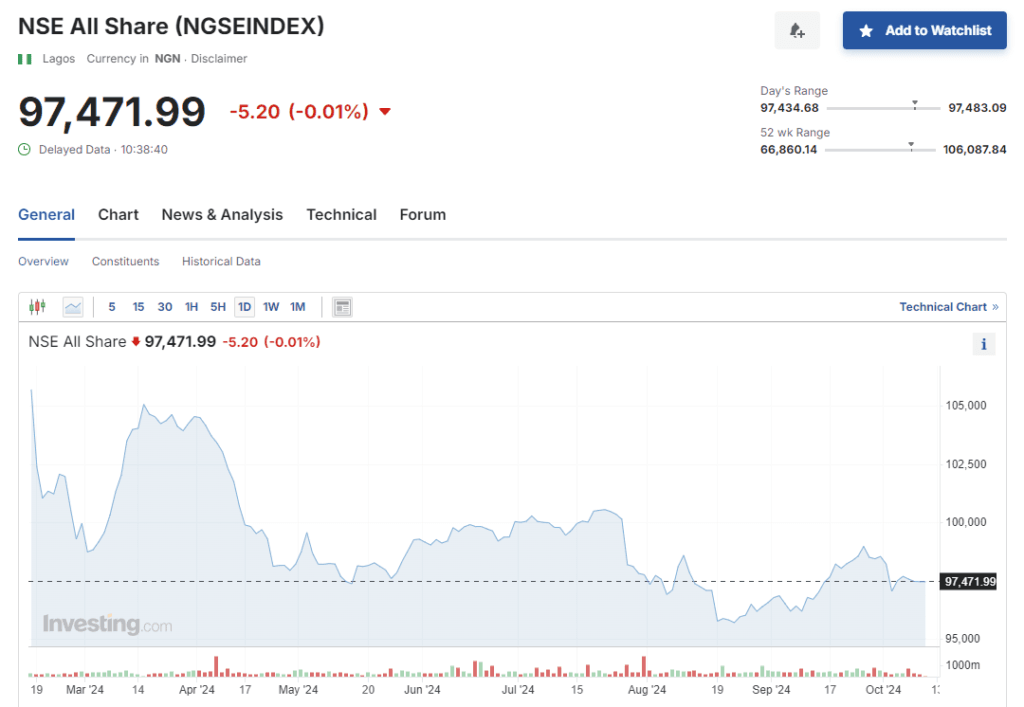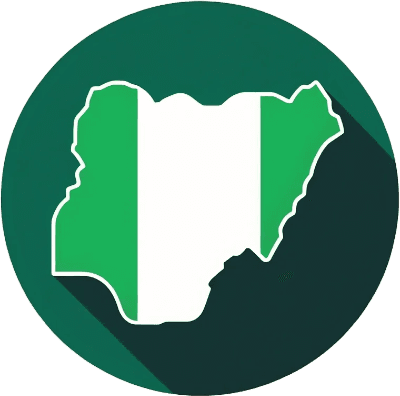Investing in Nigeria 2025 : The Best Guide for Foreign Investors
Nigeria, Africa’s largest economy, is becoming an increasingly attractive destination for foreign investors. With its vast natural resources, booming population, and significant infrastructural developments, the country offers tremendous opportunities for returns on investments. However, the Nigerian market also presents unique challenges that investors must navigate carefully. This guide will provide a comprehensive look at the investment landscape in Nigeria, key sectors of opportunity, and practical steps for foreign investors looking to enter this dynamic market.
Why Invest in Nigeria?

Nigeria presents a wealth of opportunities for foreign investors, making it a highly attractive market in Africa. As the continent’s largest economy and most populous country, Nigeria offers a diverse and rapidly expanding consumer base, driven by a youthful population and a growing middle class. The country’s strategic geographic location, abundant natural resources, and ongoing efforts to improve its business environment have positioned it as a regional economic powerhouse :
Growing Economy
Nigeria is home to the largest economy in Africa, driven by diverse sectors like oil and gas, agriculture, telecommunications, and financial services. The government has also implemented policies to attract foreign direct investment (FDI), contributing to consistent growth.
Large Consumer Market
With over 200 million people, Nigeria is Africa’s most populous country. Its growing middle class and urbanization create a strong demand for consumer goods, technology, and financial services. The country’s youthful population also means that the consumer base will continue to expand.
Rich Natural Resources
Nigeria is well-known for its oil reserves, but the country is also rich in other natural resources, including natural gas, coal, and solid minerals like gold and limestone. The Nigerian government has been working on diversifying its economy, moving from a reliance on oil to other sectors, which opens up investment opportunities in mining and energy.
Strategic Location
As a gateway to West Africa, Nigeria serves as a strategic entry point to the broader regional market. It has trade agreements with neighboring countries, providing investors with access to the entire Economic Community of West African States (ECOWAS), with a market of over 350 million people.
Key Sectors for Foreign Investors in Nigeria
Nigeria, Africa’s largest economy and most populous nation, offers a diverse range of sectors ripe for foreign investment. As the country continues to recover from the economic impact of fluctuating oil prices and global market shifts, several industries are experiencing significant growth and transformation. With a young, growing population, expanding middle class, and ongoing government reforms, Nigeria is becoming increasingly attractive to foreigners interested in promising long-term investments.

Oil and Gas
Nigeria’s oil and gas sector remains one of the largest contributors to its GDP. With vast reserves and government policies aimed at promoting investment, this sector continues to attract foreign capital. The government has also introduced incentives for investors in gas production and distribution, as it seeks to increase local refining capacity.
Agriculture
Agriculture is another key sector with significant potential. Nigeria has vast arable land and a favorable climate for farming. The country is investing in modern farming techniques and agro-processing to meet both local demand and export opportunities. This sector offers great potential for investors interested in food production, supply chain management, and value-added processing.
Telecommunications and Technology
The rise of mobile phone penetration and internet usage presents opportunities in the telecommunications and technology sectors. Fintech, e-commerce, and digital services are rapidly growing industries that foreign investors can tap into, given Nigeria’s youthful and tech-savvy population.
Challenges of Investing in Nigeria
Navigating Nigeria’s complex regulatory landscape can be challenging for foreign investors. Bureaucracy, unclear regulations, and inconsistencies in policy implementation can slow down business operations when investing in Nigeria. Partnering with local experts can help in understanding and complying with local laws and regulations.
Political and Economic Instability
Nigeria’s political landscape has been historically marked by occasional unrest, particularly in specific regions like the Niger Delta, where oil production takes place. Additionally, the country’s heavy reliance on oil exports makes its economy vulnerable to global oil price fluctuations. This can lead to sudden economic downturns, currency devaluation, and inflation spikes, which directly affect business profitability. To mitigate these risks, foreign investors must regularly monitor the political climate and global oil markets while adopting flexible business strategies to cushion the impact of such disruptions.
Inadequate Infrastructure
Nigeria’s infrastructure challenges are a significant barrier to investment. Although major cities like Lagos and Abuja have seen improvements, much of the country still suffers from unreliable electricity, poorly maintained roads, and inadequate transportation networks. This can cause delays in supply chains and increase operational costs, particularly for businesses involved in manufacturing, agriculture, or logistics. Companies might need to invest in alternative power sources, such as generators or solar energy, and consider building or upgrading transport routes to maintain efficiency and reliability when investing in Nigeria.
Regulatory Environment
The regulatory framework in Nigeria can be complex and inconsistent, with multiple agencies overseeing different aspects of business operations. Investors may face delays due to bureaucratic red tape, and regulations can sometimes change with little warning. The lack of transparency in some areas can lead to unexpected compliance costs or fines. Foreign investors should seek local legal or business advisory services to navigate these regulatory hurdles, ensure proper licensing, and maintain compliance with tax laws, environmental regulations, and labor practices when investing in Nigeria.
The Role of Government Policies in Attracting Foreign Investment

The Nigerian government has introduced a range of initiatives and policies aimed at attracting foreign investment. These include tax incentives, free trade zones, and investment promotion agencies that provide assistance to foreign investors. The Nigerian Investment Promotion Commission (NIPC) plays a crucial role in streamlining the investment process and protecting investor rights. Additionally, the government’s focus on improving ease of doing business has led to reforms in sectors like agriculture, energy, and manufacturing, making it easier for foreign investors to enter and operate in Nigeria. These efforts demonstrate a clear commitment to creating a more favorable investment climate for investing in Nigeria, which has already started yielding positive results.
How to Invest in Nigeria 2025
Investing in Nigeria requires a clear strategy and understanding of the local market. Below are the steps to get started:
Total Time: 3 minutes
Conduct Market Research
Start by conducting extensive research on the Nigerian market and the sectors that interest you. Assess both opportunities and risks. Understanding consumer behavior, regulatory requirements, and local business culture is critical.
Establish a Legal Entity
Foreign investors can either establish a new business or partner with a local firm. Setting up a company involves registering with the Corporate Affairs Commission (CAC), obtaining necessary permits, and fulfilling tax obligations. Partnering with a local firm may ease market entry, especially in highly regulated sectors.
Secure Financing
If you’re looking to invest a substantial amount like $20,000, there are multiple options. You could invest in Nigerian equities, government bonds, or small-to-medium-sized enterprises (SMEs) that show growth potential. Seek out investment funds or consider participating in a local business venture.
Consider Local Partnerships
Collaborating with local partners can offer insights into navigating the Nigerian business environment. Local firms often have the experience and networks to ease your market entry, reduce risk, and enhance compliance with regulations.
Understand the Tax Environment
Nigeria offers tax incentives for foreign investors in certain sectors. These incentives include tax holidays, exemptions, and deductions in industries like agriculture, mining, and oil and gas. Make sure to consult with a tax expert to fully understand these benefits.
Nigeria Stock Exchange All Share Index (NSE)
The Nigeria Stock Exchange (NSE) is a crucial platform for investors interested in Nigerian equities. The NSE All Share Index reflects the overall performance of the Nigerian stock market. Over the years, this index has provided both local and foreign investors with a benchmark for tracking the market’s health. Investments in Nigerian stocks can yield impressive returns, especially in sectors such as financial services, telecommunications, and consumer goods.

Benefits vs. Challenges of Investing in Nigeria
| Benefits | Challenges |
|---|---|
| 👍🏿Access to Africa’s largest consumer market | 👎🏿Political and economic instability |
| 👍🏿Vast natural resources and opportunities | 👎🏿Inadequate infrastructure |
| 👍🏿Government incentives for foreign investment | 👎🏿Complex regulatory environment |
| 👍🏿Strategic location in West Africa | 👎🏿Volatility in oil prices |
| 👍🏿Growing sectors such as tech and agriculture | 👎🏿High operational costs |
FAQ
Is it a good idea to invest in Nigeria ?
Yes, investing in Nigeria offers high potential returns, especially in growing sectors like technology, agriculture, and energy. However, investors should be mindful of the risks such as political instability and regulatory challenges.
What is the best investment in Nigeria right now ?
Some of the best investments in Nigeria currently include agriculture, fintech, telecommunications, and oil and gas. These sectors offer strong growth potential due to increasing demand and government support.
What are the risks of investing in Nigeria ?
Investors in Nigeria face risks such as political instability, fluctuating oil prices, and challenges with infrastructure. Understanding the local market and legal environment is key to managing these risks.
How to Invest $20,000 in Nigeria in 2025 ?
If you have $20,000 to invest in Nigeria, consider the following options:
Nigerian Stock Market: You can invest in stocks listed on the Nigerian Stock Exchange (NSE) across various sectors such as banking, telecommunications, and consumer goods.
Real Estate: Property in growing urban areas like Lagos or Abuja can provide steady rental income and long-term capital appreciation.
Agriculture: Invest in agro-businesses or farming ventures that cater to both local and export markets.
SMEs: Consider partnering or investing in small to medium-sized enterprises (SMEs) with growth potential, especially in industries like fintech or retail.
Conclusion
Investing in Nigeria offers immense opportunities for foreign investors willing to navigate the challenges of the market. With its growing economy, rich resources, and youthful population, Nigeria is positioned for future growth. By conducting thorough market research, securing local partnerships, and staying informed about the regulatory landscape, investors can tap into one of Africa’s most dynamic markets and achieve long-term success.
More articles in 2025
The 7 Best Coworking Spaces in Lagos for Digital Nomads
The 7 Best Coworking Spaces in Lagos for Digital Nomads 2025 Lagos, Nigeria’s bustling…
“2024 Black Friday Deals in Nigeria: Top Secrets Revealed!”
5 Strategies to Maximize Your Savings When Shopping In-Store
5 Strategies to Maximize Your Savings When Shopping In-Store In a world increasingly focused on…
GetResponse Affiliate Program: Unlock Earnings with Email Marketing Mastery
GetResponse Affiliate Program: Unlock Earnings with Email Marketing Mastery 2025 Are you ready to…
“2024 Black Friday Deals in Nigeria: Top Secrets Revealed!”
The 7 Best Coworking Spaces in Lagos for Digital Nomads
The 7 Best Coworking Spaces in Lagos for Digital Nomads 2025 Lagos, Nigeria’s bustling…
7 Mistakes to Avoid When Shopping Online in Nigeria
7 Mistakes to Avoid When Shopping Online in Nigeria When shopping online, it’s easy to…
The Ultimate Resume Builder: Create a Winning CV in Nigeria
The Ultimate Resume Builder: Create a Winning CV in Nigeria 2025 In an increasingly…
